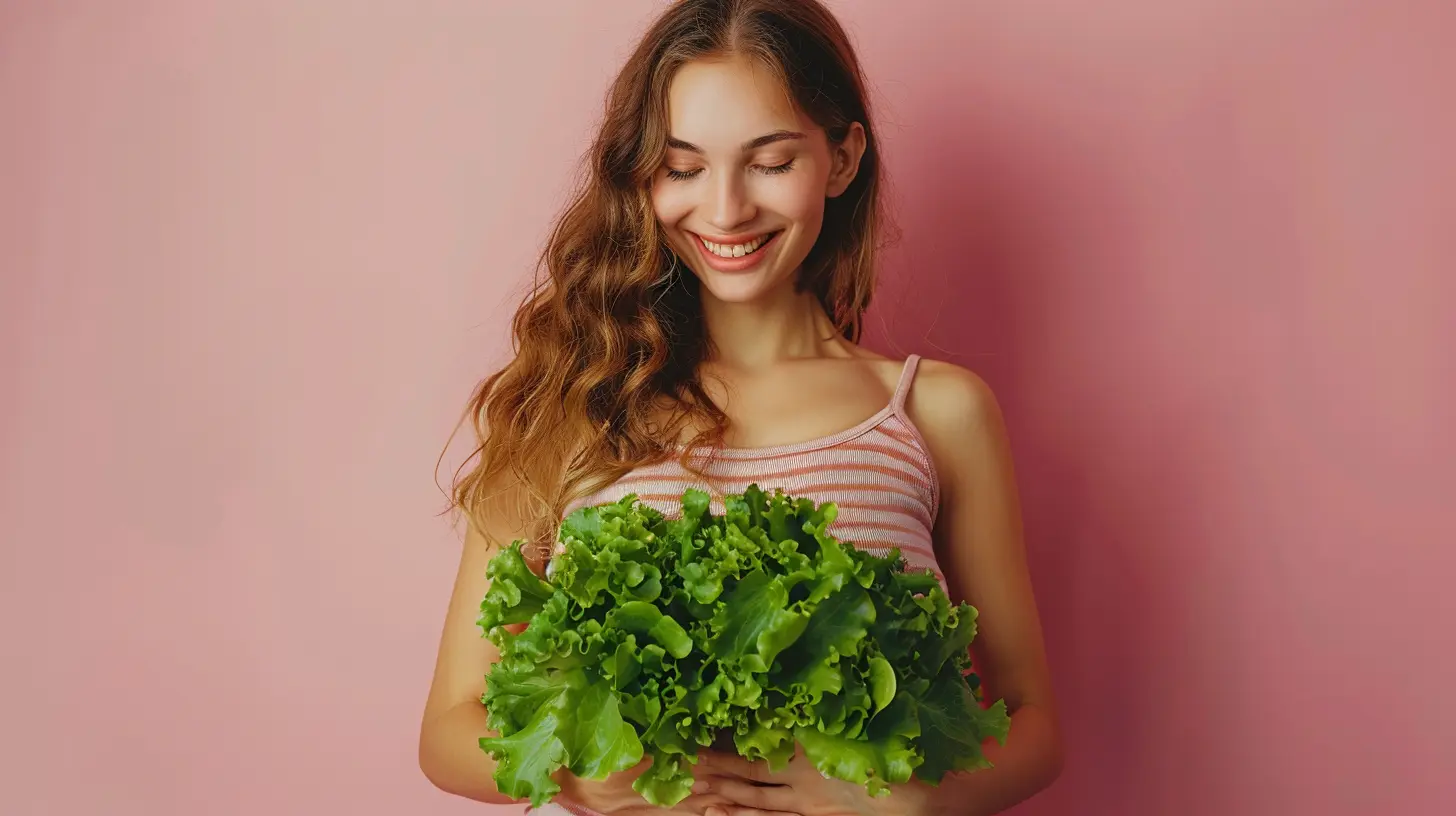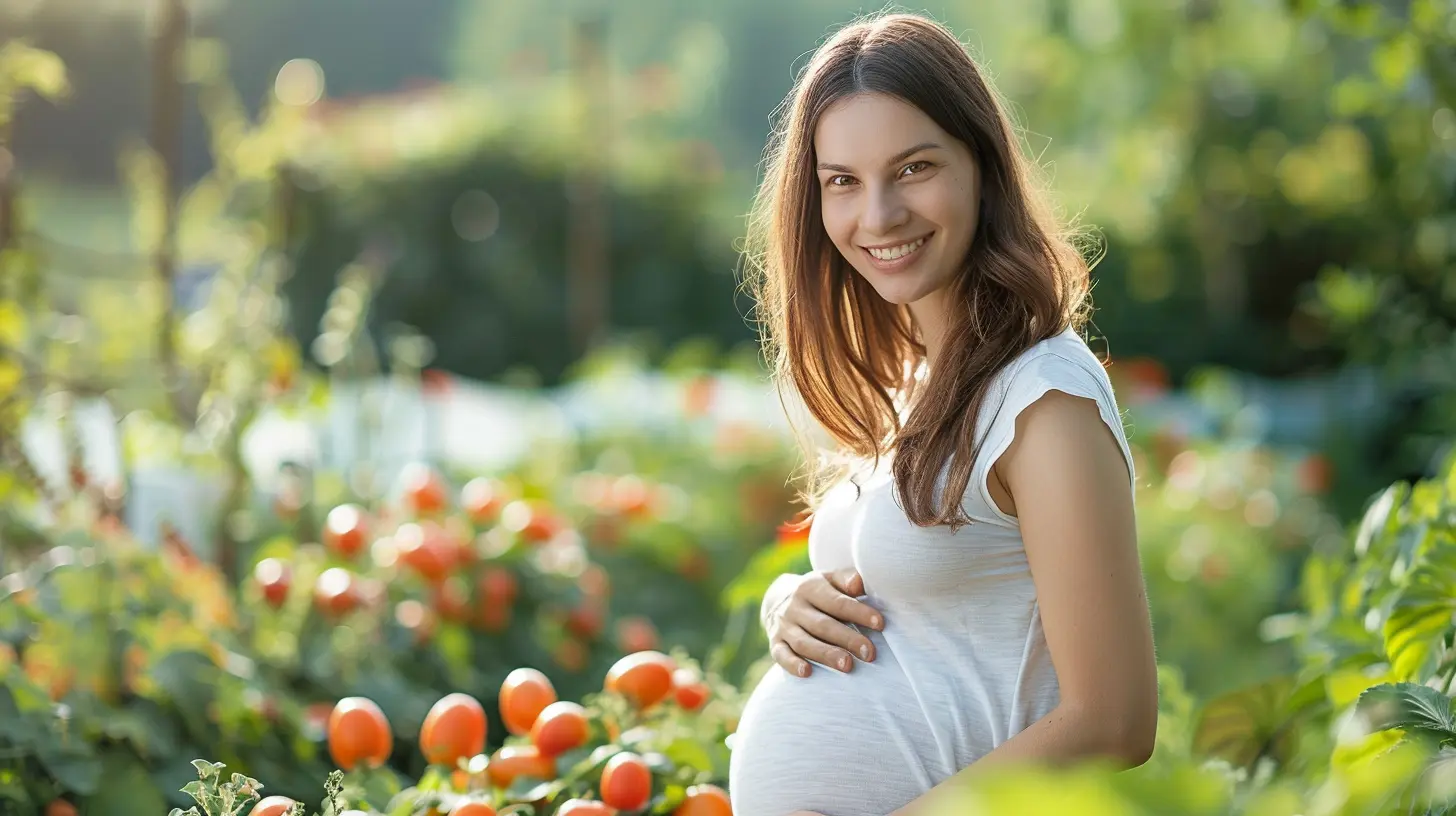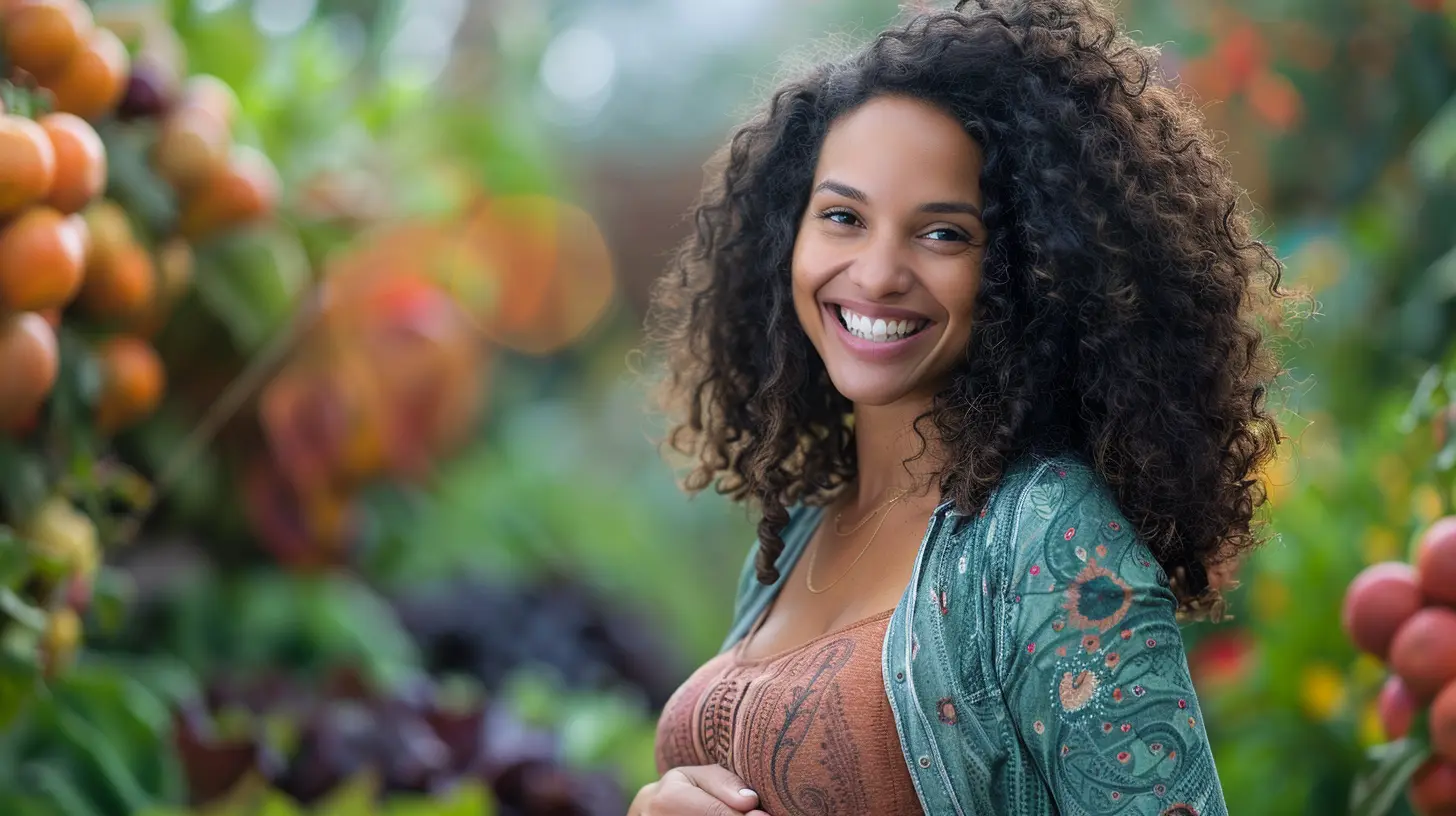Is a Plant-Based Diet Right for Pregnant Women?
9 July 2025
Pregnancy is a time full of excitement, a few nerves, and about a million questions. One of the biggest questions you might be asking yourself is: What should I eat? And more specifically: Is a plant-based diet right for pregnant women? Great question. Let’s dive into it together and break it all down.
Whether you're already living that veggie life or thinking about making the switch now that you're eating for two (or more!), it’s important to understand what a plant-based diet really means for you and your growing baby.
What Is a Plant-Based Diet, Anyway?
Before we go any further, let's clear something up. A plant-based diet isn’t just about eating salads and tofu every day (although, hey, if that’s your thing, go for it). At its core, a plant-based diet focuses primarily on foods derived from plants. That includes:- Vegetables
- Fruits
- Whole grains
- Legumes (beans, peas, lentils)
- Nuts and seeds
- Plant oils
Some people take it all the way to a vegan lifestyle, cutting out all animal products entirely. Others might still munch on the occasional dairy or egg. The spectrum is wide—what matters is where you land and how well your diet is planned, especially during pregnancy.
Nutritional Needs During Pregnancy
When you're pregnant, your body’s working overtime—literally building a human from scratch. Which means your nutritional needs are higher than before. You’ll need more:- Protein
- Iron
- Calcium
- Vitamin B12
- Omega-3 fatty acids
- Folate
- Vitamin D
Now, here's where most people start to worry: "Can I actually get all that from plants?" The short answer? Yes, with a bit of planning.
The Pros of a Plant-Based Pregnancy
Let’s take a look at the positives first. Because there are a lot.1. Lower Risk of Pregnancy Complications
A well-balanced plant-based diet can reduce the risk of things like gestational diabetes, excessive weight gain, and high blood pressure. Why? Because plant foods are naturally low in saturated fat and high in fiber, antioxidants, and essential nutrients.Think of it like giving your body premium fuel. It helps you run smoother and keeps complications at bay.
2. Improved Digestion
Pregnancy hormones often mess with your digestive system. Constipation is a super common issue. Fiber-rich foods from plants? They’re like magic for your gut. They keep things moving and reduce discomfort.3. Healthy Weight Management
Pregnancy isn’t a free-for-all buffet (unfortunately). Gaining too much—or too little—weight can lead to health issues for both you and your baby. Plant-based meals tend to be less calorie-dense but nutrient-rich. That means you’ll feel fuller longer without packing on extra pounds.4. Reduced Exposure to Toxins
Some animal products may contain environmental contaminants like mercury or hormones. Plant-based diets help avoid some of those nasties, offering a cleaner source of nutrition.
The Challenges (and How to Tackle Them)
Okay, let’s be real. A plant-based pregnancy isn’t all sunshine and kale smoothies. There are some legit concerns you should know about—but the good news is, they’re all manageable.1. Protein Power
You’re building muscles, organs, and tissues—not just yours, but your baby’s too. Protein needs jump during pregnancy, and many people assume plant-based eaters might fall short. But protein is hiding in plenty of plant-based foods like:- Lentils
- Chickpeas
- Quinoa
- Tempeh
- Tofu
- Soy milk
- Nuts and seeds
Aim for variety and eat enough calories overall, and you’re golden.
2. Iron and Anemia
Iron helps carry oxygen in your blood, and during pregnancy, your needs nearly double. Iron in plant sources (non-heme iron) isn’t absorbed as easily as iron from meat. But don’t let that scare you. You can boost absorption by:- Pairing iron-rich foods (like spinach, lentils, pumpkin seeds) with vitamin C (like citrus fruits or bell peppers).
- Cooking with a cast iron skillet (yes, it helps!).
- Possibly taking an iron supplement if your doctor recommends it.
3. Vitamin B12 Deficiency
Vitamin B12 is crucial for nerve development and red blood cell formation—and it's only found naturally in animal products. So if you’re fully plant-based or vegan, a B12 supplement is a must. No ifs, ands, or buts.4. Omega-3 Fatty Acids (DHA and EPA)
These fats are key for your baby’s brain and eye development. Fish is the go-to source, but if that’s off the table, try:- Algae-based DHA supplements
- Flaxseeds
- Chia seeds
- Walnuts
- Hemp seeds
Just keep in mind that plant-based omega-3s (ALA) aren’t converted to DHA very efficiently. A supplement is usually a smart call.
5. Calcium and Vitamin D
Strong bones don’t build themselves. Calcium and vitamin D help with bone formation, heartbeat regulation, and muscle function.- Good plant-based calcium sources: Fortified plant milks, tofu, sesame seeds, leafy greens.
- Vitamin D is trickier—it comes mostly from sun exposure and fortified foods. A supplement may be necessary, especially if you live somewhere with limited sunshine.
Building a Balanced Plant-Based Pregnancy Diet
Let’s walk through what a healthy, plant-based pregnancy menu might look like. No need for meal-prep anxiety—just think balance.A Day on Your Plate
Breakfast- Oatmeal with almond butter, chia seeds, berries, and fortified soy milk
Mid-Morning Snack
- Green smoothie: Spinach, banana, flaxseeds, plant milk, and a scoop of vegan protein powder
Lunch
- Lentil and quinoa salad with roasted veggies, olive oil, lemon dressing
Afternoon Snack
- Hummus and whole-grain crackers with raw veggie sticks
Dinner
- Stir-fried tofu with brown rice and a mix of colorful veggies
- Side of kale salad with pumpkin seeds
Evening Snack
- Baked apple with cinnamon and a handful of walnuts
Don’t forget to drink plenty of water and get your prenatal vitamins in daily.
Real Talk: Should Every Pregnant Woman Go Plant-Based?
Here’s the bottom line—there isn’t one right way to eat during pregnancy that fits everyone. While a plant-based diet can be totally safe and super healthy during pregnancy, it won’t be ideal for everyone.If you were plant-based before pregnancy and feel good sticking with it, no problem—just make sure you’re getting everything you need. If you’re thinking of transitioning now, maybe start with plant-forward meals and ease into it.
And if at any point, you feel tired, dizzy, or off—talk to your doctor or a registered dietitian who knows prenatal nutrition. No guessing games here. Your health—and your baby’s—comes first.
FAQs on Plant-Based Pregnancy
Can I get enough protein on a vegan diet while pregnant?Absolutely, as long as you include a wide variety of protein-rich plant foods.
Do I need to take supplements?
Most likely, yes. Especially for Vitamin B12, DHA, iron, and possibly calcium and vitamin D.
Will my baby develop properly on a plant-based diet?
With proper planning and care, plant-based diets can support a healthy pregnancy and baby development.
Should I go fully vegan during pregnancy?
Not necessarily. Flexibility is okay. Focus on nutrient density, and don’t be afraid to include some animal products if you find it hard to meet certain needs.
Final Thoughts
So, is a plant-based diet right for pregnant women? That’s going to depend on you. Your body, your lifestyle, your preferences, and your ability to stay on top of your nutrition all play a part.With careful planning, balanced meals, and a few strategic supplements, a plant-based diet can be a safe, healthy, and empowering choice during pregnancy. But remember—it’s not all or nothing. There's plenty of room to tailor your approach in a way that honors your body and supports your growing baby.
And don’t forget—pregnancy is not the time to put pressure on yourself to be perfect. Give yourself grace, listen to your body, and do the best you can. That’s more than enough.
all images in this post were generated using AI tools
Category:
Plant Based DietAuthor:

Tiffany Foster
Discussion
rate this article
2 comments
Thornewood Foster
Great article! Embracing a plant-based diet during pregnancy can be both nourishing and beneficial. It's essential to ensure proper nutrients, so consulting with a healthcare provider is a smart choice.
November 27, 2025 at 4:21 AM

Tiffany Foster
Thank you! I'm glad you found it helpful. Consulting with a healthcare provider is indeed crucial for a balanced and nutritious plant-based diet during pregnancy.
Margaret McCloud
Thank you for addressing such an important topic! It's crucial for pregnant women to consider their dietary choices carefully. I appreciate the insights provided on plant-based diets, as they can offer nutrients needed during pregnancy when planned thoughtfully. Great read!
July 23, 2025 at 4:09 AM

Tiffany Foster
Thank you for your thoughtful comment! I'm glad you found the insights on plant-based diets helpful for pregnancy. Your support means a lot!


